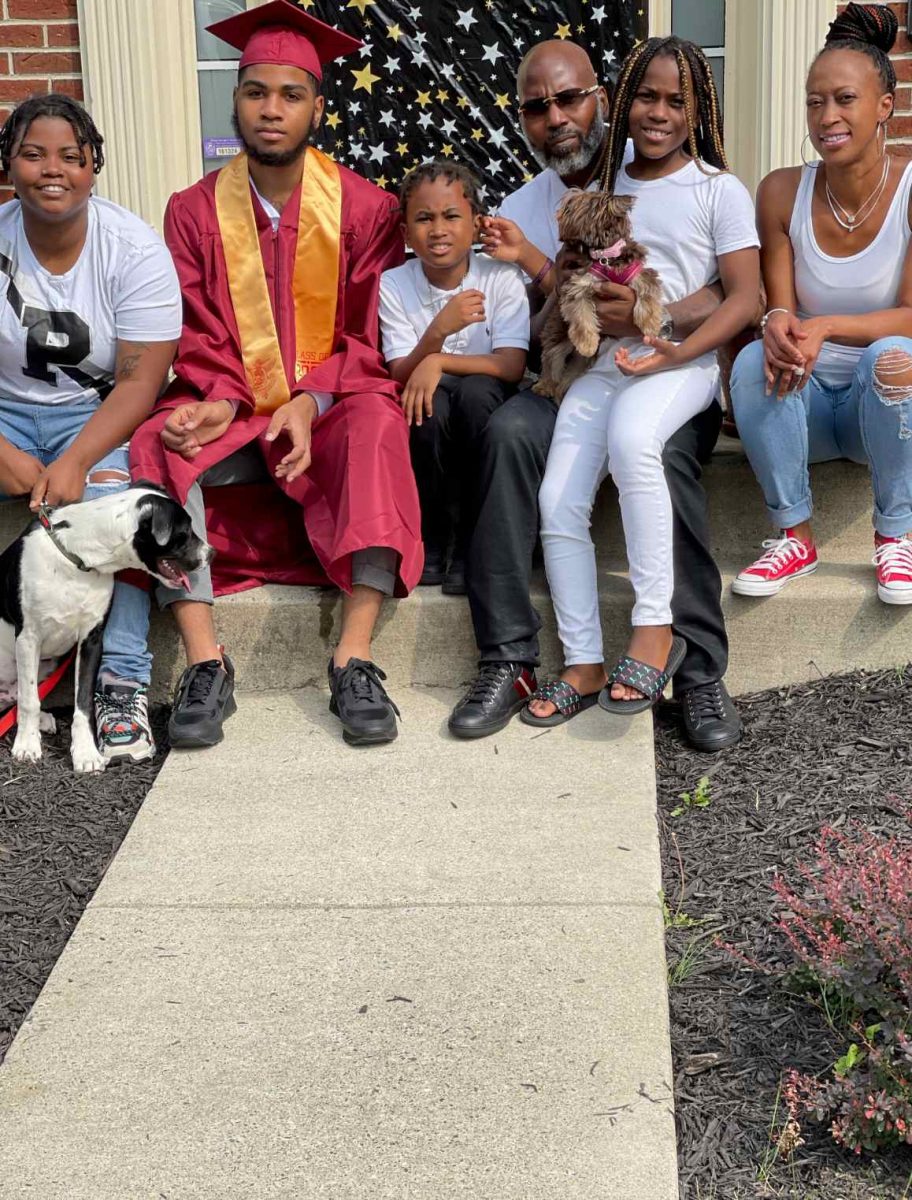My Story
From overlooked to the President’s Daily Brief.
EARLY LIFE
Born in Washington, DC
I was born uptown in Washington, DC, the son of an incarcerated father.
My father was in and out of prison throughout my childhood. Around age 4, my family was forced to pack up and leave everything behind in fear of retaliation for something my father had done in the streets.
We moved often—each time leaving behind pieces of our lives. I grew up without a consistent father figure, navigating a world where the men around me were either absent, incarcerated, or involved in the streets.
My mother, the epitome of grace and faith, worked tirelessly—often double shifts—teaching me to trust in God and dream of a future beyond our circumstances.
But still, the streets called. Without my father there to guide me, I drifted toward what I knew.
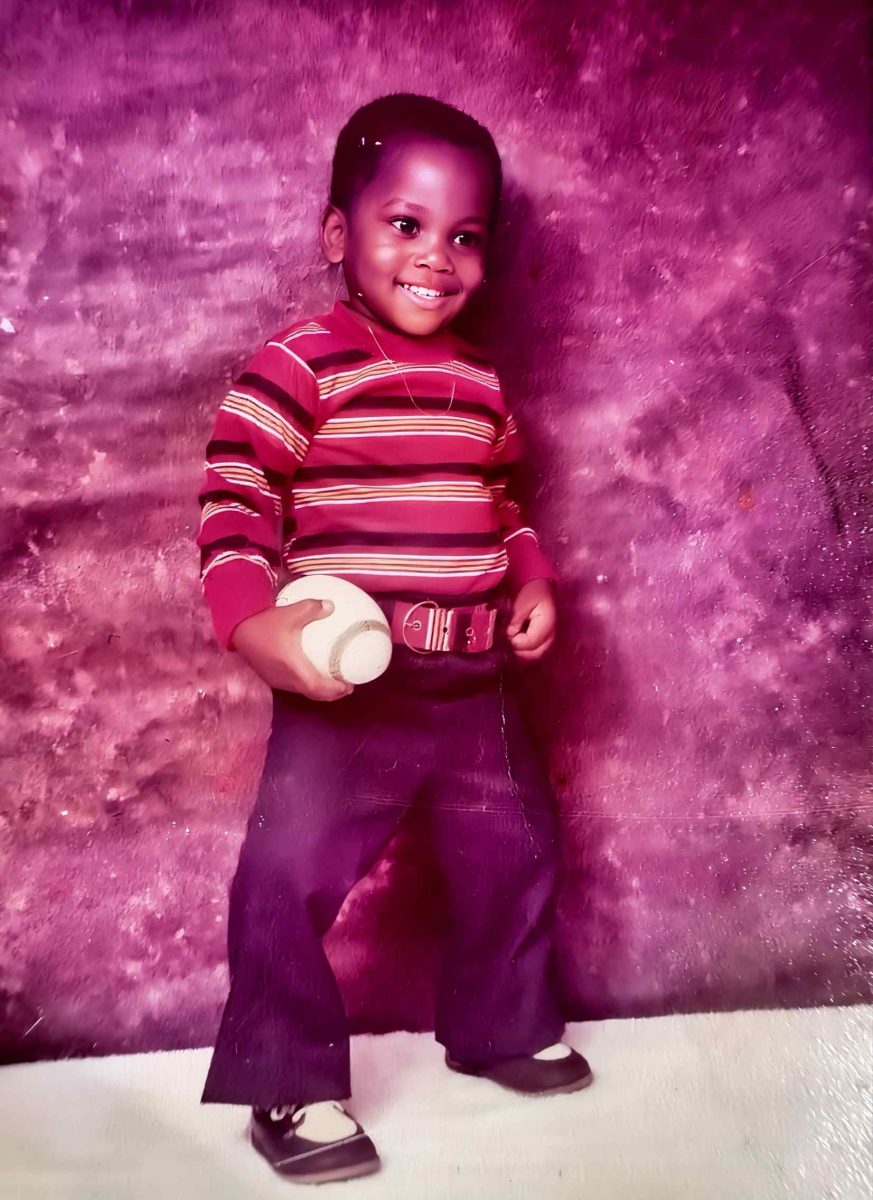
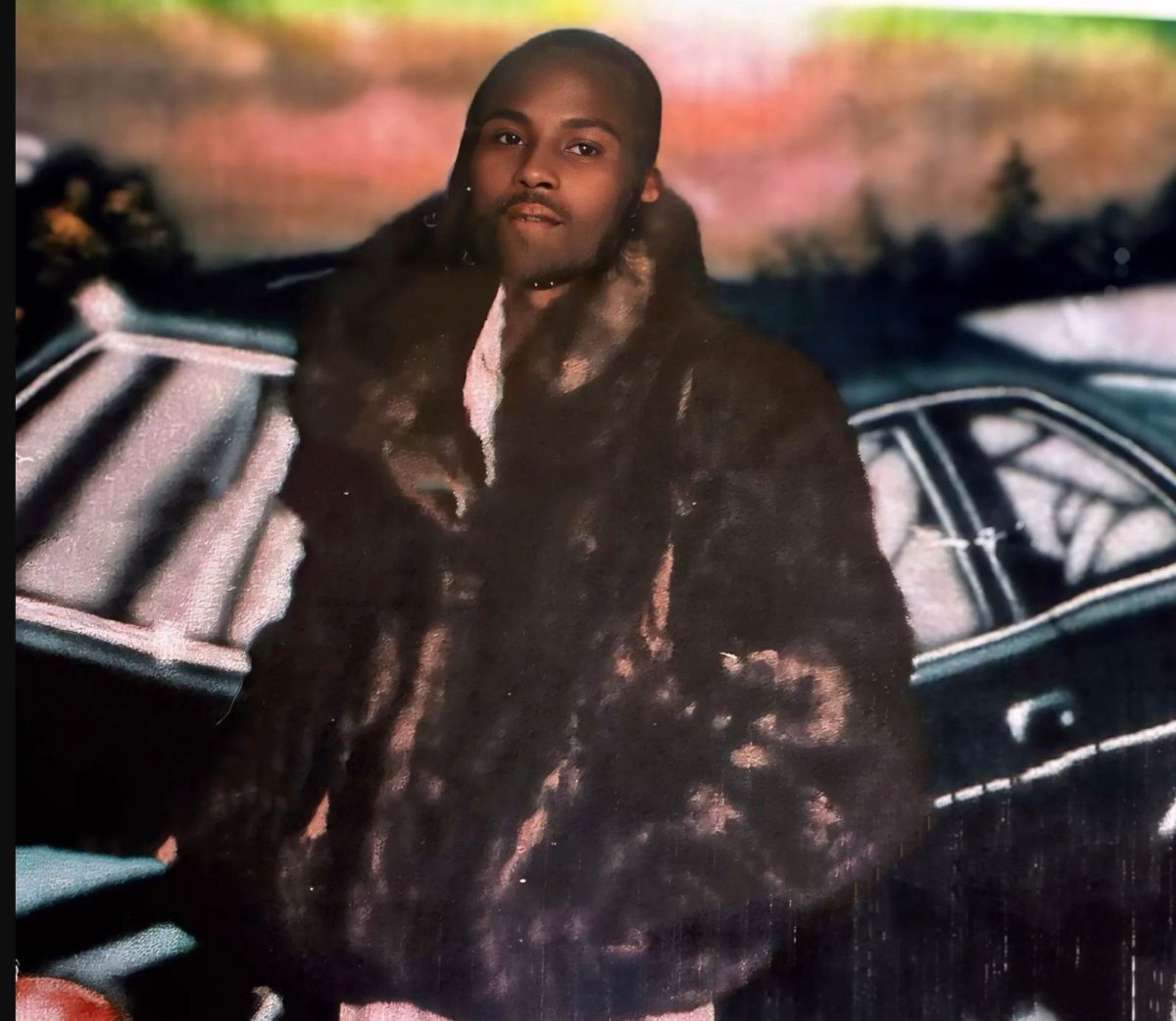
THE FALL
Following in My Father's Footsteps
By the time I was a teenager, life was chaotic.
My father was incarcerated. My mother was working double shifts. And I was navigating a world where survival often meant compromise.
The streets weren’t just a temptation—they were my reality. They were what I knew. They were, in many ways, the path my father had walked.
I started selling drugs, drinking, and smoking, trying to mask the pain of a life filled with uncertainty and loss.
I was following in my father’s footsteps—heading toward the same outcome.
I thought I was in control. I wasn’t.
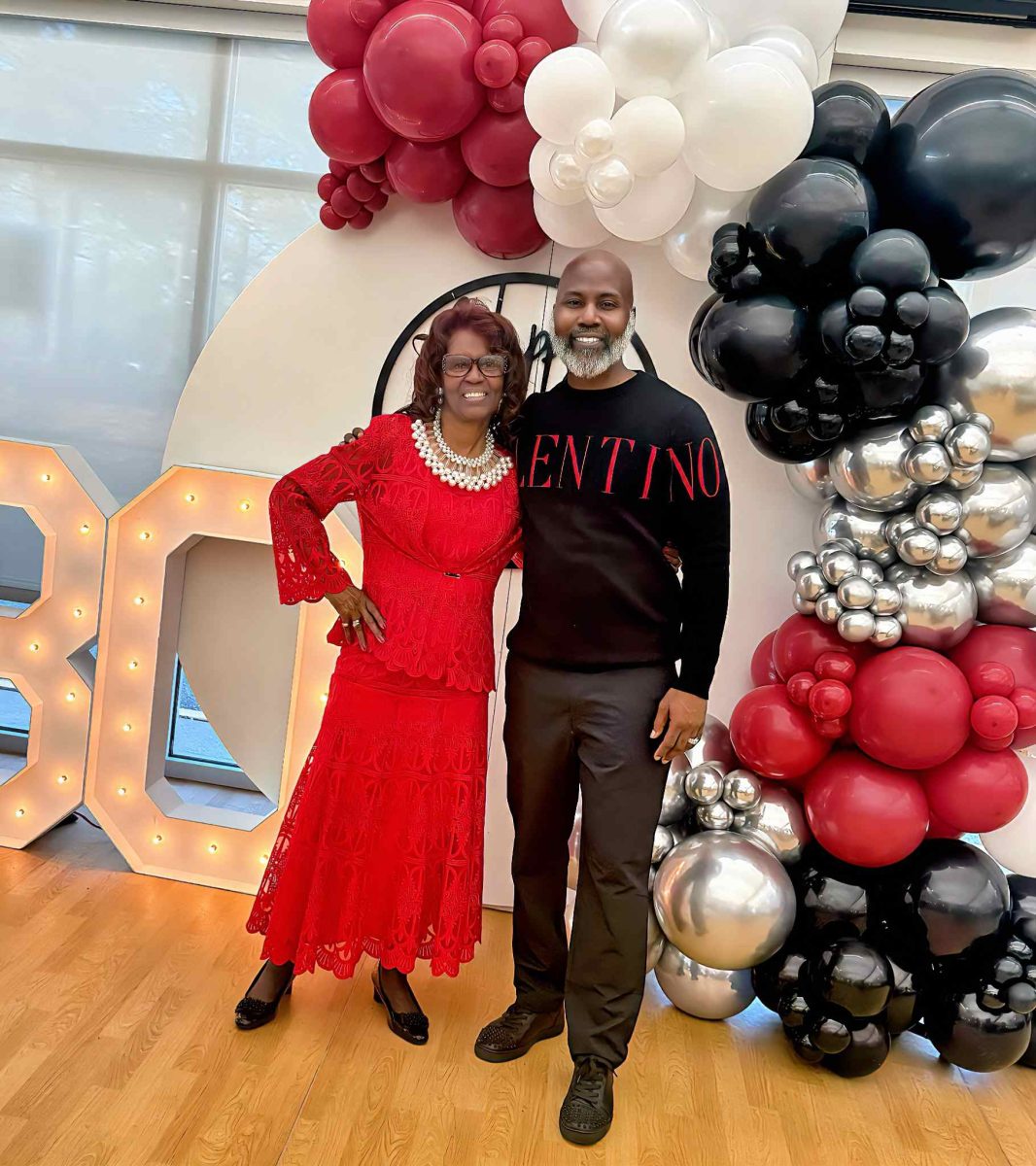
THE TURNING POINT
The Courtroom Promise: Breaking the Cycle
Everything changed the day I saw my mother’s tears.
Shackled in a courtroom at 19, facing felony assault and battery charges on a police officer with intent to maim, I turned and looked into her eyes.
I saw pain. I saw hope. I saw a mother who had sacrificed everything for me—and I was breaking her heart.
I was becoming my father. I was continuing the cycle.
That moment broke me… and rebuilt me.
I made a silent vow right then:
“I will never be the cause of her hurt again.”
But more than that, I made a decision:
“I will break this generational cycle. I will become something different. I will rewrite my family’s story.”
That promise became my fuel. My purpose. My mission.
I realized the only way to keep that promise wasn’t just to avoid causing more pain—it was to become the kind of man who brings healing. To become a light. A messenger. A protector. A leader.
To become something my father never became.
To become the message of what’s possible when you refuse to repeat the past.
THE CLIMB
Serving My Country
I served time for my choices. A few months in jail gave me time to think, to reflect, to decide who I wanted to become.
When I got out, I knew I needed a change of environment. I needed structure. I needed discipline. I needed to become something different than what I’d known.
I enlisted in the United States Navy.
For 7 years, I served as a Logistics Specialist, completing 3 six-month deployments. I earned multiple awards and commendations. I learned what it meant to serve something bigger than myself.
The Navy didn’t just give me a career—it gave me a new identity. It taught me discipline, resilience, and leadership.
It showed me I could finish what I started.
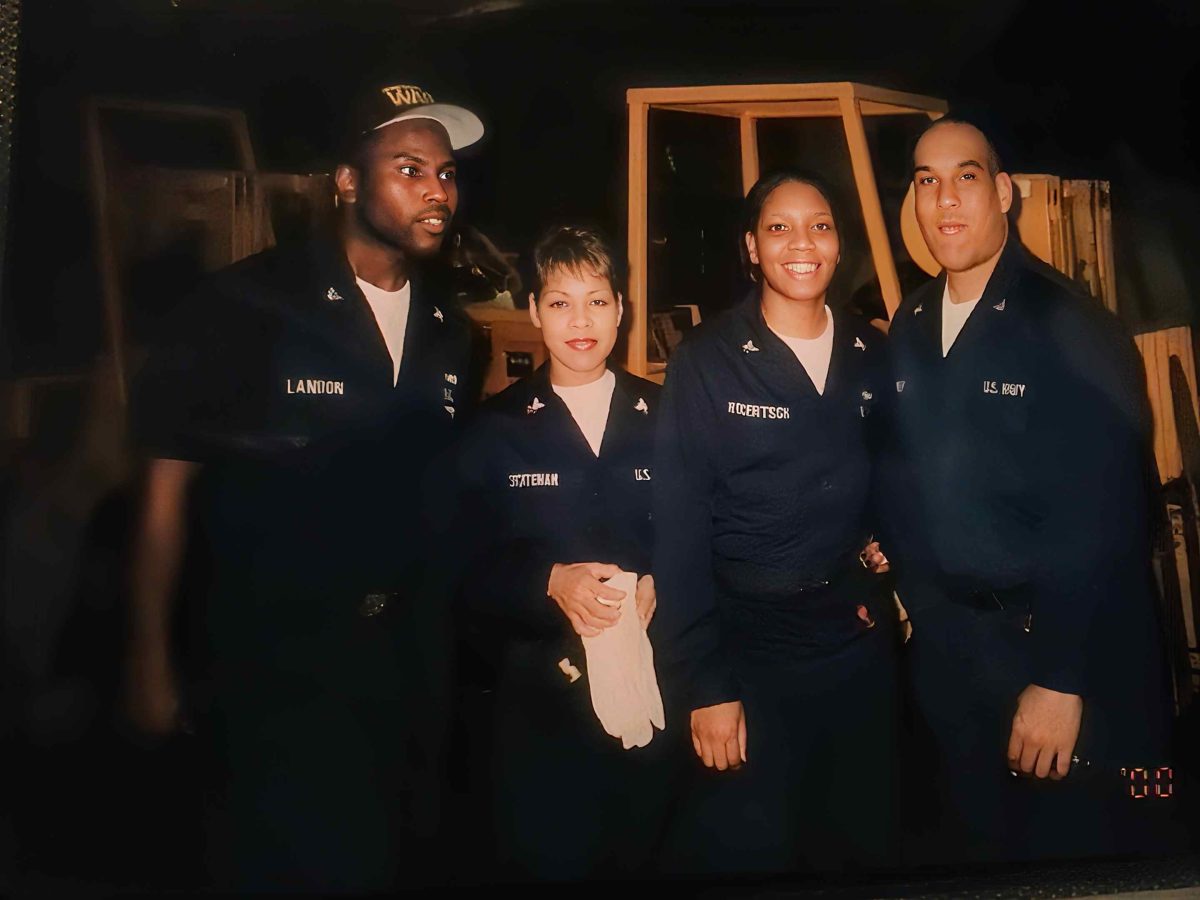
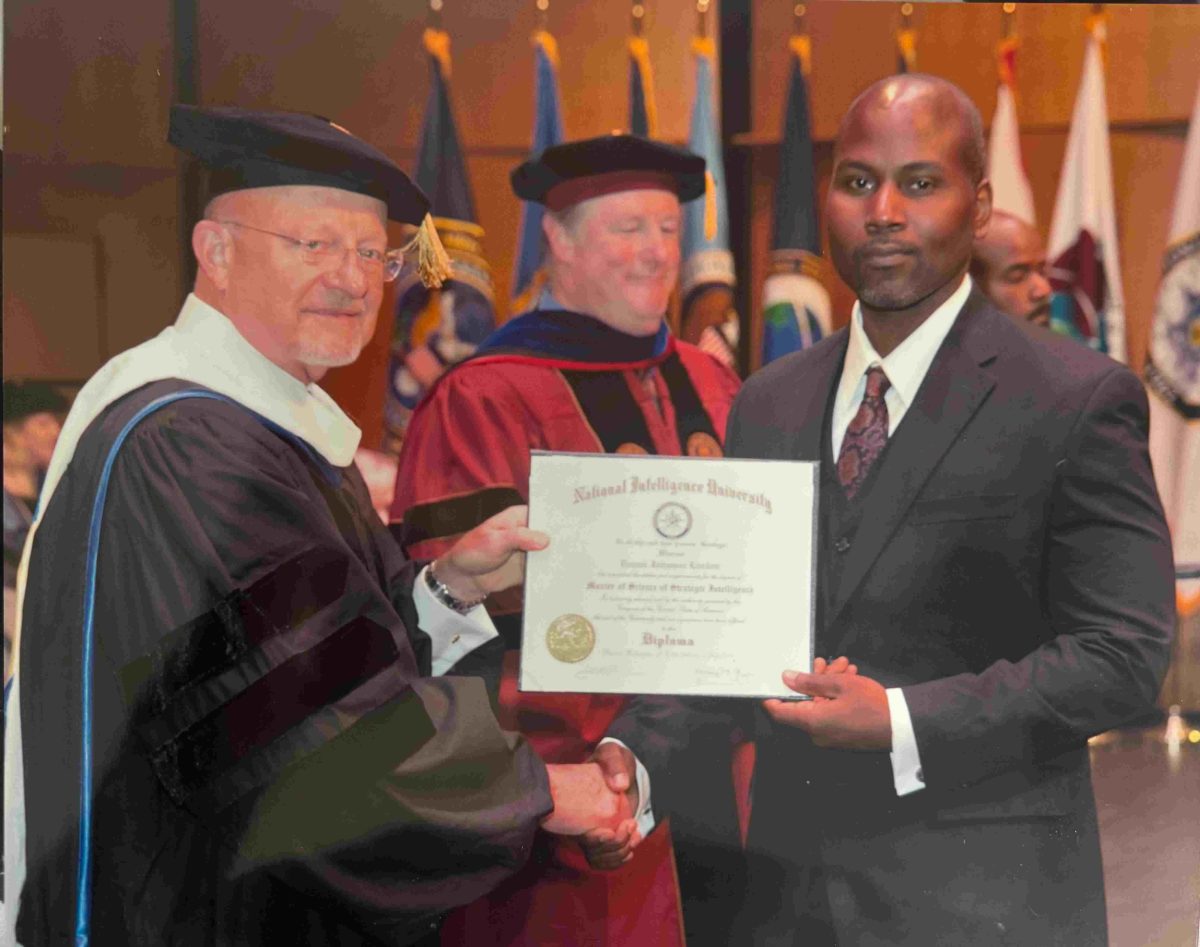
BECOMING THE FIRST
First-Generation College Student: No Roadmap, Just Faith
When I left the Navy, I used my GI Bill to do something no one in my family had ever done: go to college.
I enrolled as a first-generation college student with no family roadmap, no blueprint, and no one to call when things got hard.
And things got hard.
I was a single father raising my children while taking classes, studying late into the night, and wondering if I really belonged in a classroom.
I felt the imposter syndrome. Walking across campus thinking, “Everyone here had parents who went to college. Everyone here knows the unwritten rules. I’m behind before I even start.”
I felt the financial stress. Juggling GI Bill paperwork, childcare costs, and wondering how I’d make it work.
I felt the isolation. No one in my family understood what I was going through. They were proud, but they couldn’t help me navigate.
I felt the guilt. Succeeding beyond my family’s experience felt like leaving them behind.
But I remembered that courtroom promise. I remembered my mother’s tears. And I refused to repeat my father’s path.
I kept going.
I earned my Bachelor’s degree in Business Management from the University of Phoenix.
I became the first person in my family to graduate college.
I walked across that stage as a single father, a Navy veteran, and a first-generation college graduate.
I had broken the cycle.
But I didn’t stop there.

REACHING NEW HEIGHTS
Master's Degree: Proving There's No Ceiling
After earning my Bachelor’s degree, I wasn’t finished.
I wanted to prove to myself—and to every first-gen student who comes after me—that there is no ceiling to where we can go.
I pursued my Master’s degree in Strategic Intelligence from theNational Intelligence University, one of the most elite graduate programs in the nation.
The academics were rigorous. The standards were high. But I had already proven to myself that I could finish what I started.
I graduated with my Master’s degree—a first-generation college graduate with TWO degrees.
From no family college history to a Master’s degree from an elite program.
From son of an incarcerated father to graduate of the National Intelligence University.
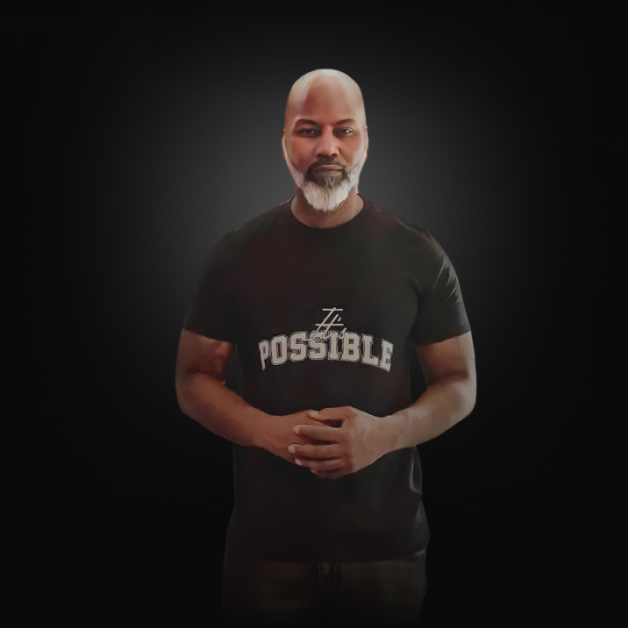

THE PINNACLE
Chief of Staff for the President's Daily Brief: Shattering the Ceiling
With my Master’s degree and proven track record, I was selected for one of the most critical intelligence positions in the United States government:
Chief of Staff for the President’s Daily Brief.
I coordinated daily intelligence briefings for the President of the United States.
I held a Top Secret/SCI clearance—the highest level of security clearance in our nation.
Every single day, I ensured that the most important intelligence from across our government reached the President’s desk—intelligence that informed decisions affecting national security, global affairs, and the safety of the American people.
Think about that for a moment.
At 19, I was shackled in a courtroom facing felony charges—following in my incarcerated father’s footsteps.
By my 30s, I was coordinating intelligence briefings for the President of the United States.
As a first-generation college graduate who once thought his life was over, I was now working at the highest levels of national security.
I didn’t just break the cycle. I shattered it.
That courtroom promise had taken me further than I—or anyone who knew me back then—ever imagined.
This is why I speak to Trio students, schools and first-generation trailblazers.
Because I AM the proof that there is no ceiling for us.
Because I AM the message that students and first-generation trailblazers can break generational cycles and reach the absolute top of any field.

WHY "I AM THE MESSAGE"
My Philosophy: "I Am The Message"
“I Am The Message” isn’t just a tagline—it’s my truth.
It means when I stand in front of TRIO students and say “you can finish,” I’m not guessing—I finished as a first-gen student with no roadmap, while raising my children alone.
It means when I tell first-gen students they can overcome imposter syndrome, I’m not theorizing—I felt it every single day in class, and I still earned a Master’s from an elite program.
It means when I say first-gen students can reach the highest levels of any field, I’m not motivating—I’m demonstrating. I coordinated intelligence for the President.
It means when I tell students they can break generational cycles, I’m not preaching—I broke the cycle from my father’s incarceration to the Oval Office.
My story IS the message.
My transformation IS the blueprint for TRIO success.
My life IS the proof that first-gen students belong—not just in college, but at the absolute top of their fields.
When TRIO directors book me to speak, they’re not getting theories about first-gen success.
They’re getting someone who IS first-gen success.
Someone who IS the outcome their program is designed to create.
That’s why I Am The Message.


THE MISSION
Now I Speak to First-Gen Students
Today, I stand before TRIO programs and first-generation college students as living proof that finishing is possible, excelling is possible, and breaking generational cycles is possible.
My message is simple yet powerful:
You belong in college.
Your imposter syndrome is lying to you.
There is no ceiling to where you can go.
First-gen students can break cycles, finish strong, and lead at the highest levels.
I speak primarily to TRIO programs and first-generation college students because that’s who I was—and that’s the audience I know best.
Every time I step on a stage at a TRIO conference, I honor that courtroom promise.
Every time I help a first-gen student persist through doubt, I’m living out the legacy I vowed to build—not just for my mother, but for every student who’s ever felt like they don’t belong or wondered if they could finish.
I don’t just speak to motivate. I speak to prove.
I speak to demonstrate that first-gen students—sons and daughters of incarcerated parents, single parents, immigrants, veterans—can reach the absolute highest levels of any field.
Because I Am The Message that first-gen students need to hear.

PERSONAL
Faith, Family, and Future
Putting God first gave me a foundation to build on—a rock that no storm could shake.
My family—my children and grandchildren—remind me every day that my finish created a new starting line for them. Being the first meant they’ll never have to be.
I broke the cycle so they could build on a new foundation.
I’m a father. A grandfather. A Navy veteran. A first-generation college graduate with two degrees. A former Chief of Staff for the President’s Daily Brief. The son of an incarcerated father who refused to repeat the past. A speaker. A mentor.
And I’m on a mission to impact 100,000 students by the end of 2026—primarily first-generation students navigating college without a roadmap.
Because I Am The Message they need to hear: First-gen students can break cycles, finish strong, and excel at the highest levels.
